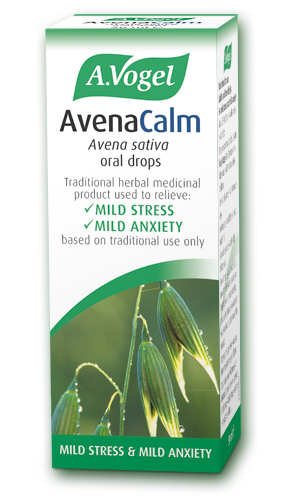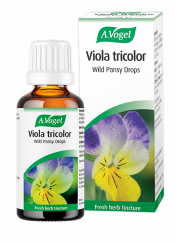Does stress affect your skin?
Stress is an important survival mechanism designed to make you more aware of impending threats or dangers. When you experience stress, your body will release a rush of chemicals, accelerating your heart rate, redirecting nutrients to your muscles and joints and, in general, preparing you for a fight or flight scenario.
The problem is that your body doesn’t have any sense of moderation when interpreting psychological stress. All stress, no matter how trivial, is an immediate red flag warning of a situation where your survival may be tested or your life may be in danger. This then creates a real problem if you’re experiencing stress on a daily basis, especially if you suffer from a skin condition like psoriasis or eczema.
Stress has been linked with skin conditions for a long time, even if the underlying reason can’t quite be pinpointed. For example, in one study it was found that 68% of adults with psoriasis experienced flare-ups during stressful periods in their lives!1 But how does stress have this impact on your skin?
What does cortisol do to your skin?
Let’s start by looking at one of the hormones that is released when you experience stress, cortisol. This hormone is produced in your adrenal glands and, in a small amount it is actually quite beneficial for your body, helping to regulate your blood sugar levels and metabolism. However, if your blood cortisol levels are constantly being raised, it can have a real impact on your skin.
Firstly, it’s believed that cortisol can stimulate your sebaceous glands, meaning you may produce more oil – not good news for sufferers of oily skin or acne.2 It’s also speculated that cortisol may slow your production of hyaluronic acid, which helps to moisturise your skin, making your skin drier and more sensitive to irritants.
Cortisol also works to inhibit your production of collagen, an essential structural protein. As you age, your production of collagen will naturally decline so high blood cortisol levels can be particularly damaging for sensitive, ageing skin. Finally, arguably the most interesting thing about cortisol is its impact on your immune system.
You see, believe it or not, cortisol is released to reduce inflammation but, if you’re experiencing chronic stress, eventually high levels of blood cortisol will end up suppressing your immune function. Why then are stress and cortisol so often linked to inflammation? Well, you see chronic stress can affect how your body reacts to inflammation and your immune cells can start to become resistant to cortisol’s regulatory effects.3
What does stress do to the rest of your body?
Okay, so cortisol can directly affect your skin by decreasing your production of hyaluronic acid and collagen and increasing your production of sebum oil but what about its indirect impact on your skin? How does stress affect other areas of your body?
Your immune system

I’ve already touched on your immune system a little bit in relation to cortisol but stress in general, makes your immune system more sensitive. You may find that irritants and allergens that didn’t previously affect your skin suddenly cause it to breakout in a reaction or that you experience more and more flare-ups when it comes to skin conditions such eczema and psoriasis. Your body may also become more vulnerable to viruses and infections if your immune function is being suppressed and, unfortunately, if your immune cells become resistant to cortisol, you may suffer from widespread inflammation.
Your digestive system

It’s estimated that around 70% of your immune cells can be found in your digestive system, so if stress is affecting your immune system, it is also having a knock-on effect on your digestion. When you experience stress, you may find that it is accompanied by a bout of diarrhoea or constipation. This is because, when your fight-or-flight instincts are triggered, your body ceases to prioritise digesting food. As a result you may experience some digestive discomforts which means that waste products and toxins will be sitting in your body for longer – not good news for your skin!
You also have to consider that, in times of stress, your ability to absorb skin-boosting nutrients such as calcium, magnesium and vitamin D may be compromised. This means your skin won’t be getting the vitamins and minerals it needs to function properly. Finally, stress can also affect your gut flora, which consists of billions of strains of friendly and unfriendly bacteria. When your population of unfriendly bacteria overwhelms your friendly bacteria, it can have a number of negative repercussions for your skin, as I explore in my blog, ‘Are probiotics good for acne?’
Your sleep patterns

Have you ever found yourself tossing and turning in bed, unable to sleep because your mind is still chewing over something that happened earlier that day? Stress is an extremely common cause of sleep deprivation but, as I shall go on to discuss, your skin needs sleep. This is because your body does a lot of serious maintenance work while you sleep and, if you’re not getting the right amount of sleep, it means your skin isn’t getting the time it needs to repair itself.
The unfortunate thing is that sleep deprivation in itself can trigger stress so the two often get caught up in a vicious cycle. To make matters worse, sleep deprivation can have a big impact on your immune system as well as your eating habits, as our sleep advisor Marianna discusses in her blog, ‘Is your lack of sleep making you overeat?’
Your blood sugar levels

So, stress can weaken your immune system, upset your digestion and deprive you of sleep. It’s not exactly a good picture so far and, unfortunately, it doesn’t get any better when it comes to your blood sugar levels. When you experience stress, glucose is often released as your body is preparing for some serious physical activity (think along the lines of outrunning a sabre tooth tiger) raising your blood sugar levels.
If you experience chronic stress, this means your blood sugar levels are constantly being elevated which will cause more and more insulin to be released. This may be particularly bothersome if you suffer from acne or oily skin as insulin can affect your production of sebum oil. You also have to consider that if you’re repeatedly experiencing a blood sugar crash, where your blood sugar levels eventually drop rapidly, you’re going to be craving more sugary, carb-rich foods that may upset your skin too!
How can you protect your skin from stress?
Okay, so the bottom line is that stress is definitely not a good thing for your skin, especially if you suffer from a skin condition such as acne, eczema or psoriasis. However, the real problem is that sometimes, the skin condition itself is the root cause of your stress.
This can make it very difficult as, when you experience a flare-up, you’re more likely to feel stressed which in turn will only prolong your symptoms. How do you escape this destructive cycle?
Address your flare-up
If you’ve suddenly woken up in the morning to find your skin is red and itchy or looked in the mirror only to see that those tell-tale spots have returned then already, your stress levels are likely spiking. That’s why you need to be prepared and know how to handle your symptoms.
When it comes to acne, I often recommend applying our Echinacea Cream, which contains extracts of Echinacea, a herb that’s often associated with supporting the immune system. This herb also contains echinosides, which can help to protect spot-prone skin from free radical damage and even promote wound healing! In addition to this cream, you could also take a look at some natural remedies for acne which I go over in more detail in my blog ‘How can I get rid of acne naturally?’
If you suffer from a dry skin condition like eczema, or even psoriasis, you may want to opt for a cream that’s more geared towards hydrating your skin and soothing any irritation. In this instance, our Neem Cream may be worth considering as it contains natural anti-inflammatory properties, helping to calm inflammation and ease any associated itchiness or irritation. Internally, our Viola Tricolour tincture may be more beneficial as it can help to ease internal inflammation of the skin, making it extremely useful for eczema-prone skin and rashes.
Soothe your stress levels
Once you’ve address your flare-up, it’s time to think a bit more about your stress levels. There are a number of ways you can tackle this issue – you could try practicing deep breathing techniques or taking up mindfulness. Both can make you more aware of your own emotions and enable you to calm yourself when you feel stress is about to strike. If you want to learn more, just check out this blog, ‘Breathing tips to relieve stress.’
It’s also been shown that our diet can have a big impact on our stress levels so, rather than downing a cup of coffee in the morning or falling into stress-fuelled eating habits, try to make sure you’re drinking plenty of fluids and eating foods that are rich in mood-boosting magnesium! You can learn more about the right foods to improve your mood in Marianna’s  blog, ‘7 suggestions for changing stressful eating habits.’
blog, ‘7 suggestions for changing stressful eating habits.’
Finally, you could try one of our gentle stress remedies such as Avena Calm. This product is made using extracts of the oat plant and contains polyphenols that have natural antioxidant properties. Since oxidative stress is often linked to psychological stress and anxiety, this remedy can help to counteract this and gently ease mild symptoms of stress and anxiety.
1https://www.ncbi.nlm.nih.gov/pmc/articles/PMC3890931/
2https://www.webmd.com/beauty/the-effects-of-stress-on-your-skin
3https://www.sciencedaily.com/releases/2012/04/120402162546.htm









